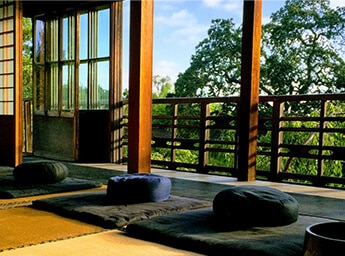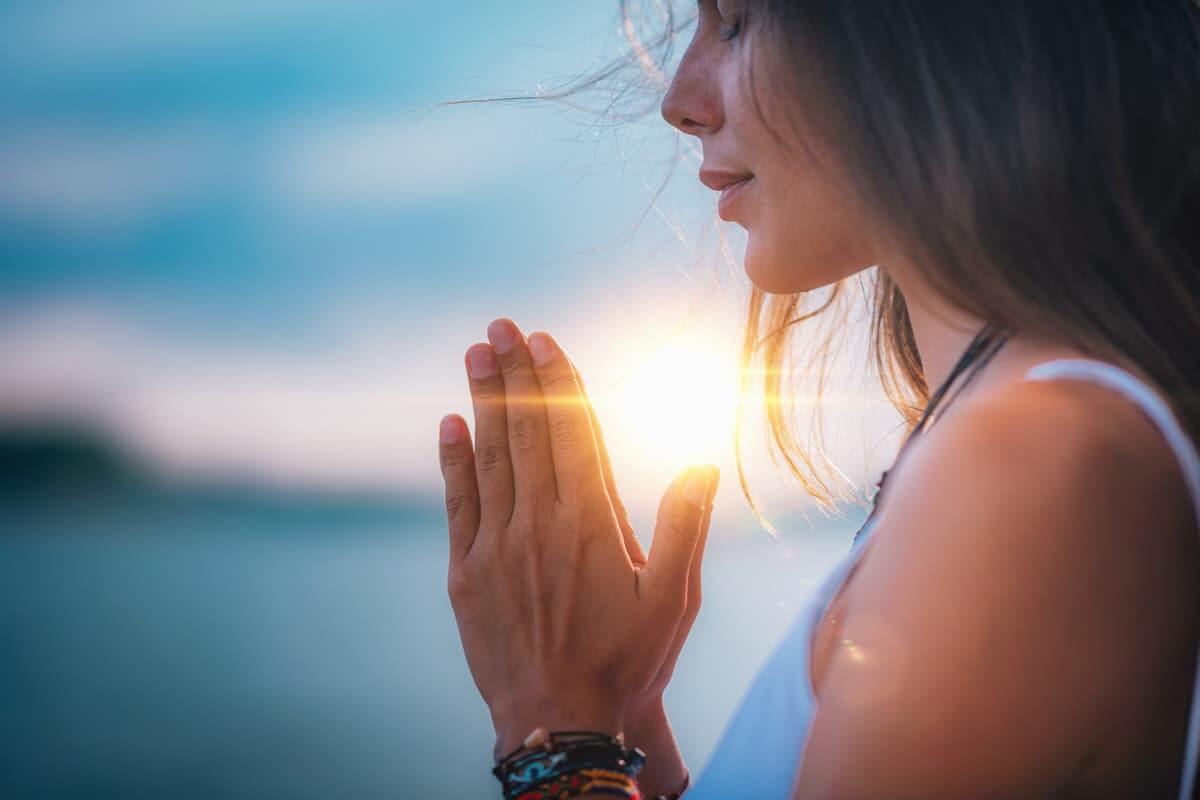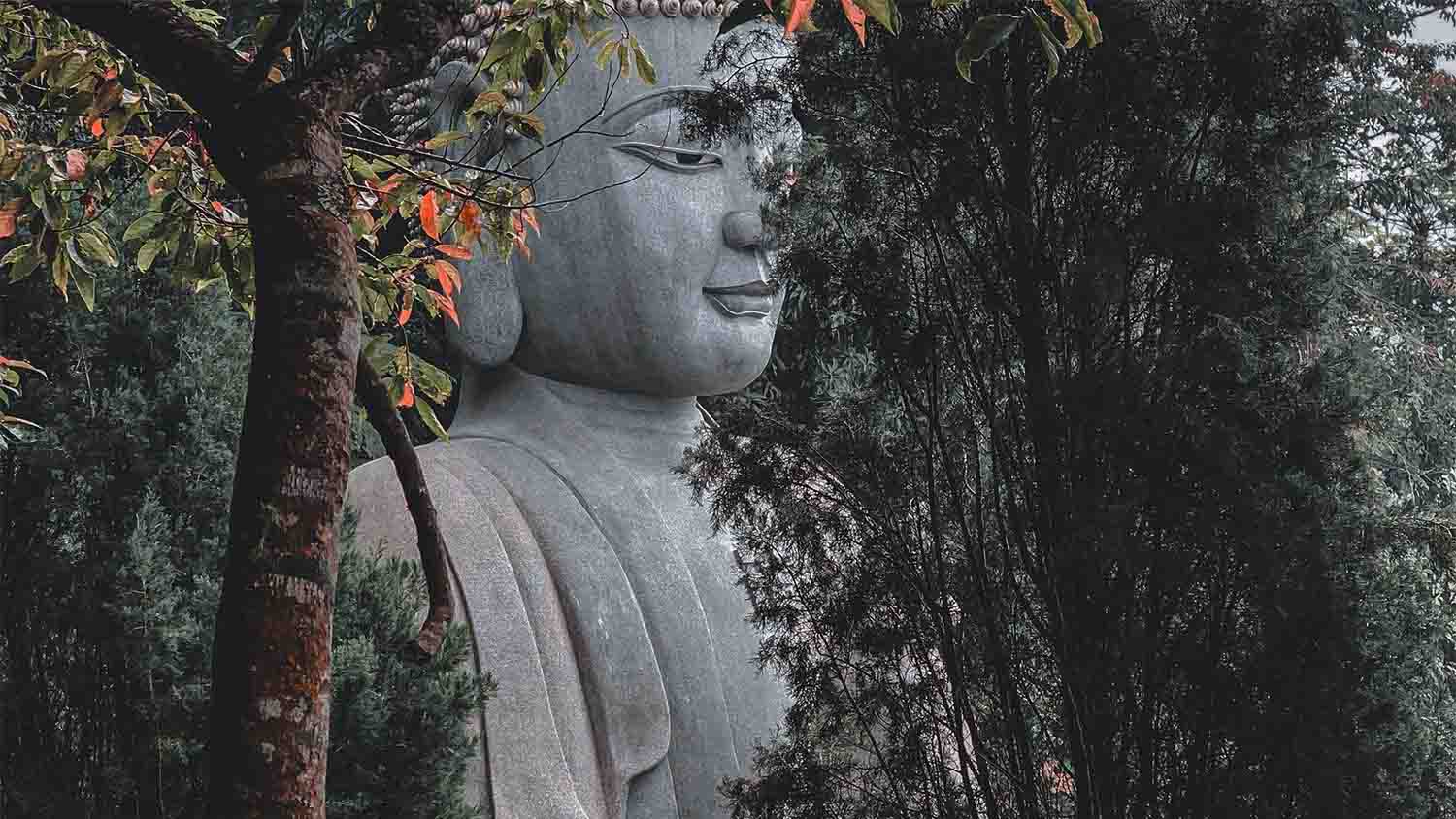Reading time: 7 minutes
We create a zone of silence that allows nature to speak to us—a zone in which we can perceive the subtle teachings of earth, wind, water, fire, and ether . . .
Chief among the criticisms of contemplative life, spiritual retreat, and meditation is that they’re quietist, selfish, and politically irresponsible. These are political and materialist critiques of a spiritual life.
But don’t we want the people who make choices that affect our lives to have healthy bodies and minds so that they’ll wish to secure health, well-being, and a good quality of life for everybody? It makes sense to suppose that given healthy bodies and minds in a healthy environment, healthy ideas will follow.
Social Responsibility
Social responsibility requires us to reflect on the aims of reform. And this reflection can be strategic, technical, philosophical, or spiritual.
At the level of survival, we don’t ask about the purpose or meaning of life. It’s only with some moments of leisure that we’re able to consider such questions. So, we can either spend our lives helping others to physically survive, or we can live what we believe to be our life purpose, through family, career, spirituality, self-expression, custom, or, perhaps, a sense of duty.
This is to say that social reform is one mode of life among many—as is self-care and contemplation. Of course, these modes need not exclude each other. Practically, however, there is only so much time in a day. We can’t save the world, tend to our families, our partners, our projects, and hobbies, and at the same time stop climate change. Intuitively we know that we need to focus and limit the scope of our activity if we’re going to be effective in life. But how do we choose? How do we evaluate whether or not we’re making the best use of our days on earth? Indeed, what do we mean by ‘best?’
Usually this question isn’t relevant because we find ourselves in a job or with responsibilities that fully demand our time. And we are involved in this job for decades until our children are grown, and we retire. So, the purpose of our life is to do our job well, help with family and friends where we can, and that’s pretty much it.
We don’t tend to reflect often or critically on what we’re doing, whom it benefits, how it benefits—or perhaps harms—others, or whether or not it’s something that particularly excites us. Because, practically speaking, these questions are irrelevant. We don’t have time, or we lack the interest, to seriously consider them.
The Transcendentalist
American answers to the question about the meaning of life come from one of two camps: Materialist or Idealist; and these two positions are eloquently described by Ralph Waldo Emerson in his lecture, The Transcendentalist.
To summarize, the Materialist says that there is no meaning in life beyond what the body can enjoy. The Idealist says that we enjoy intangible realities and spiritual values such as beauty and truth.
A Unitarian minister, Emerson is the poet and philosopher credited with articulating the foundation for American literary and philosophical culture. It’s a culture unique for being informed by nature. Emerson’s words and language give meaning and purpose to nature, our relation to it, and to each other.
We as humans are the kinds of beings who are committed to language. (And by language here, I refer to all forms of communication, including music and visual art). And the extent to which we use language is the extent to which we generate meaning in our lives. We are essentially linguistic beings. And we create ourselves with language.
The Mapmaker
Language situates us. It creates a picture of ourselves in a world: an inside world and an outside world. And we act and behave according to our picture, as if the picture were a kind of map with destinations A, B, or C. But what if the map is inaccurate? Or a map laid down upon another map? How would we know? What happens if we start doubting the map? Rather than conceding we’re lost, we say the terrain must be wrong, so we dam up the streams, blow up the mountains, burn down the meadows and trees to make the landscape fit our map. We become blind to the truth of the land. And the more we tweak our environment to fit our map, the more we render the true map useless.
These days, the prevailing attitude is that the map defines the territory. So, whoever controls the map and the cartographer, can draw up the kingdom and its territories in whatever way suits him or her. This way of thinking has serious implications for health and well-being. Who, for example, will define health, or happiness? Or what it means to be a man, a woman, a husband, father, mother, or wife. What does it mean to be successful? Or beautiful?
Zone of Silence
Buddhism teaches us that life comes from water, fire, wind, earth, and a kind of ether in which all these elements appear. Language—somehow—boils up from these basic elements and names them. The activity of these elements happens by itself. And we have the ability to study how it is that life gives birth to life. Those who have studied this process—poets, philosophers, theologians, and artists — are the ones who have drawn up the maps — the ways and paths of humanity that guide us to a harmonious existence with life and with each other. To say that we’ve lost the way, is to say that we’ve thrown out the maps the wise have created for us, and we seek to create and define new maps and territories of our own, as if the true ground beneath us didn’t exist.
All of the great religions teach us that nature is a question of balance, and if out of balance, Nature will eventually correct herself. If we do not live in conversation with the life that designs the world—how can we see it? How can we draw accurate maps?
Intellectual, contemplative, meditative life—the life of a mapmaker—has always been characterized by silence. We create a zone of silence that allows nature to speak to us—a zone in which we can perceive and receive the subtle teachings of earth, wind, water, fire, and ether.
To protect the zone of silence is to protect the sweet, sensitive, passive capacity of our mind and that function of our consciousness that allows us to see clearly. But our culture is not established upon or organized around this capacity. Indeed, dominant American culture rewards the opposite. So the arts, religion, philosophy, and spirituality currently all languish.
A New Feminist Emphasis
Perhaps a new Feminist emphasis could be one in which we recognize the creative aspects of receptivity. And this kind of activism may not be far off. For example, here’s an article by Franklin Foer from The Atlantic, who writes about reading Mary Oliver’s poetry daily as a morning meditation, captivated by her phrase, “Attention is the beginning of devotion.”
The power of the feminine principle is that it receives and is moved to create by what it observes. Perhaps in cultivating such a framework and culture we could put ourselves in environments more suited to nurturing a consciousness aware of itself as having been born of wind and water and fire and earth—grateful rather than opposed to life. Maybe to create the space for truth is the result of truth and the activity of truth as an end in itself.
This is why I’m working to establish temples in Japan and North Carolina. To create zones of silence in which we can be fully active and activated as human beings as part of and in service to the life that gave us life. This is the deep sense in which we can say that we’re healthy, complete humans, and I hope that some of you will join me in these places, contemplating and creating space for contemplation, amidst our loud, burning world.
This does not strike me as selfish.
Contemplative Practice for May
Take five minutes a day to protect and establish your zone of silence and connect with the nature around you. Or: spend 30 minutes in a forest, 30 minutes on social media, and 30 minutes reading The Transcendentalist by Emerson and compare how you feel after those 30 minutes.
What do you notice? Where would you like to give more of yourself? Why?






